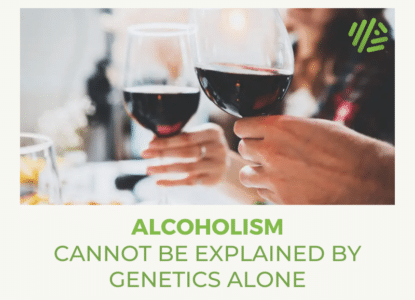8 Brain Boosting Foods for Optimal Cognitive Performance

Contents
In my experience, two groups that are commonly looking for brain boosting foods are seniors and students.
What if someone told you they could “better your brain” by food alone?
Seems to easy, right? Well the truth is there are a multitude of foods that provide the brain the nutrients it needs to function at its most optimal capacity. Fear not, no matter the dietary lifestyle you follow, vegetarian, vegan, etc., there are food options for you and your brain!
Here are just 8 of the beneficial brain foods to sharpen cognitive function, all backed by scientific research.
#1. Berries
Berries, though small, have a mighty impact on cognitive health. Research suggests that adding berries to the diet can prevent age-related memory loss. And of course, it doesn’t hurt that berries are sweet and delicious, making it easy for most people to add some colorful nutrients into their dietary lifestyle.
Additionally, a 2012 study found that among women who consumed two or more servings a week of strawberries and blueberries, it helped delay memory decline by up to two and a half years.
Try adding some of your favorite berries to a smoothie, into a salad, or on oatmeal to assist the aging brain. Better yet, have a handful as a snack.
#2. Salmon
Salmon the superfood! Salmon is an extremely rich source of omega-3 fatty acids that have been shown to decrease inflammation and support the maintenance of brain structure. With such high levels of omega-3 fatty acids, salmon offers so much more. Recently, the American Academy of Neurology found that omega-3 fatty acids can reduce brain damage caused by neurotoxins like lead and mercury.
In the above study, women with higher levels of omega-3 fatty acids in the blood were found to have a greater volume of the hippocampus region in the brain, which is associated with memory formation. In addition, higher levels of omega-3 fatty acids from the consumption of fish were found to potentially protect against exposure to air pollution.
Not only are omega-3 fatty acids important for preventing age-related cognitive decline and exposure to air pollution, but deficiencies may limit brain growth during fetal development and early in life. So, what are you waiting for? Start adding salmon to your diet today.
The 2020 Dietary Guidelines for Americans suggests individuals consume two four ounce servings of fish, specifically salmon, a week. It is best to focus on adding a wild caught salmon to the diet over any farm raised options.
See also:
Can Vegans Get Enough Omega-3 From Plants Alone?
#3. Dark Chocolate
Do you have a sweet tooth? Well, if you aren’t willing to give up sweet treats in your diet, not to worry. Various studies indicate that a higher concentration of cacao in chocolate has a beneficial impact on cognition, memory, mood, and immunity. Cacao provides flavonoids which are antioxidants and known for reducing inflammation, benefiting brain and heart health.
Another study found that flavonoids increased cerebral blood flow, which ultimately supports improved brain function for individuals who may be fatigued, sleep deprived, or simply due to ageing. How great does that sound? But that’s not all, this super3food has more to offer.
Bacteria in the gut are found to feed on chocolate, which can produce anti-inflammatory compounds when fermentation occurs. This speaks to the anti-inflammatory nature chocolate has on the body in addition to the gut brain connection.
It’s very exciting to hear that cacao in the diet has such great brain benefits but remembering to stick to dark chocolate is what will provide results. Milk chocolate is not enough for improving cognitive health. A study from Northern Arizona University found that participants who consumed the 60% cacao chocolate were more alert and attentive after consumption.
#4. Tea and Coffee
Teas and coffee are crucial part of most people’s morning routines, and for some, a consistent beverage option throughout the day. Whether once in the morning or multiple times throughout the day coffee and tea offer more than energy.
A 2014 study published in The Journal of Nutrition discovered that participants with higher caffeine consumption scored better on tests of mental function, indicating that these caffeine sources provide more than just short-term benefits.
See also:
#5. Nuts and Seeds
While most nuts and seeds offer healthy fats and other nutrients that can be beneficial to bring health there is one specific nut to incorporate into daily dishes. The magical nut: a walnut.
Walnuts are an excellent source of omega-3 fatty acids and have been found to help improve cognitive test scores in a 2015 study from UCLA. These nuts are a good source of protein and healthy fat, which is good for both the brain and the heart.
#6. Avocados
Avocados are definitely having their time in the lime-light right now, and rightfully so. On toast, as a dip, in a salad, get them wherever you can! Avocados are a great source of lutein, which is associated with cognitive benefits. Individuals who consumed avocados on a daily basis were found to have improved performance on one of the cognitive tests in a 2020 study.
However, improved performance was not observed in the other two cognitive tests. Since avocados are a good source of fiber and monounsaturated fats, it is possible that these nutrients may have played a role in the cognitive effects observed.
Consuming more monounsaturated fats is an important way to protect nerve cells in the brain according to a study published in the October 2012 issue of the Federation of American Societies for Experimental Biology. Because avocados are a good source of monounsaturated fats, they help to protect nerve cells in the brain which promotes overall cognitive health.
#7. Whole Grains
A relationship has been found between the consumption of whole grains and increased attention. Individuals who consumed more whole grains showed superior selective attention in terms of behavior and neuroelectric activity.
More research is needed to better understand this relationship, but it provides additional support for the consumption of whole grains in addition to its other benefits of fiber and B vitamins.
#8. Beans
You’ve heard the childhood rhyme. “beans, beans, they are good for your heart…,” well you know the rest. But did you know they also promote brain health as well?
Beans are a nutritious source of complex carbohydrates that are especially valuable to the brain and nervous system because of their B vitamin content. These vitamins are helpful for making the neurotransmitters that pass signals between nerves.
Add one or Add Them All
Whether you add one of these brain boosters or all of them to your diet, this is just the tip of iceberg. There are plenty of other food options that can provide your brain the support it needs. Clear the brain fog that bogs you down with a food first approach.
See also:



